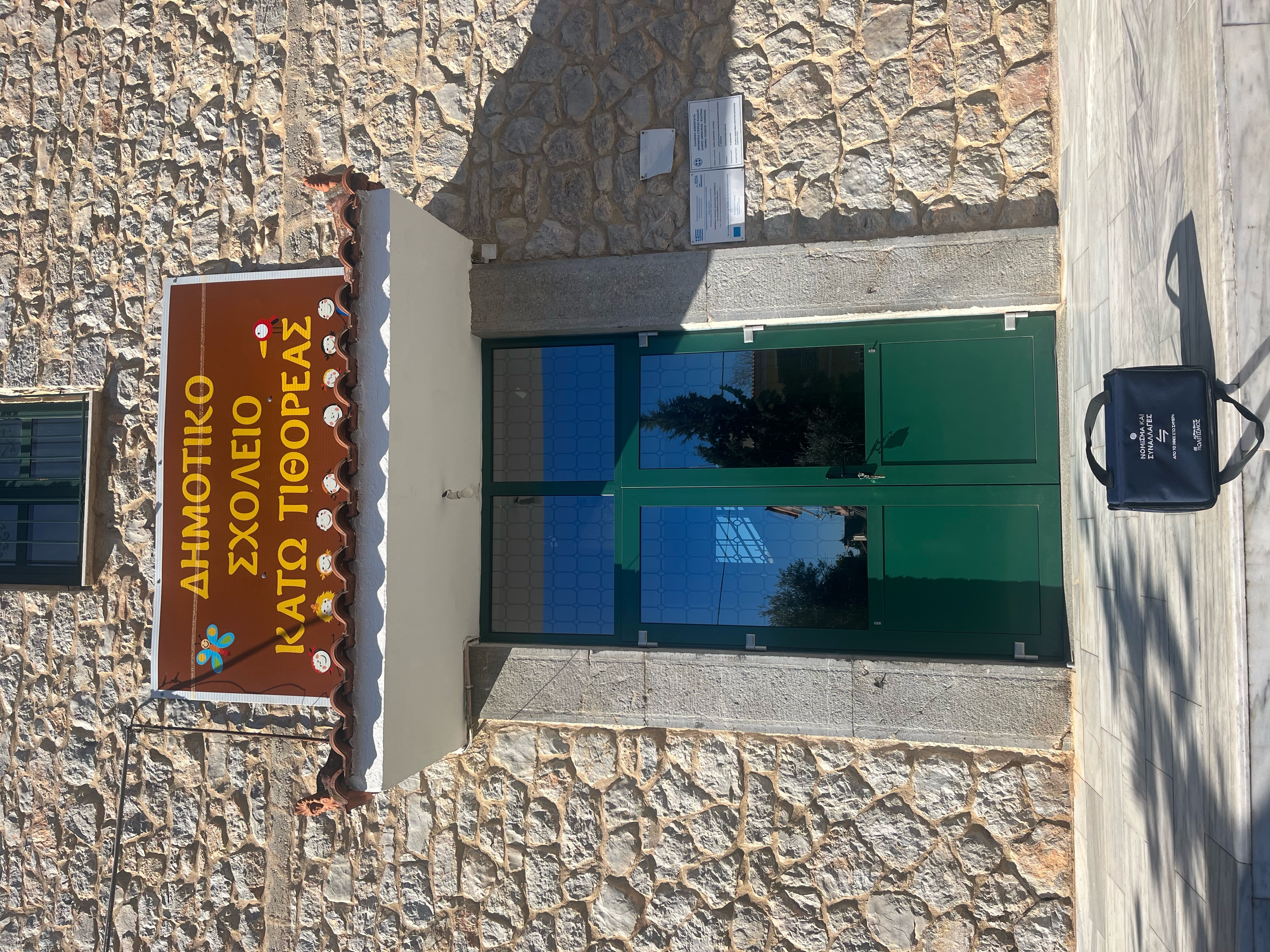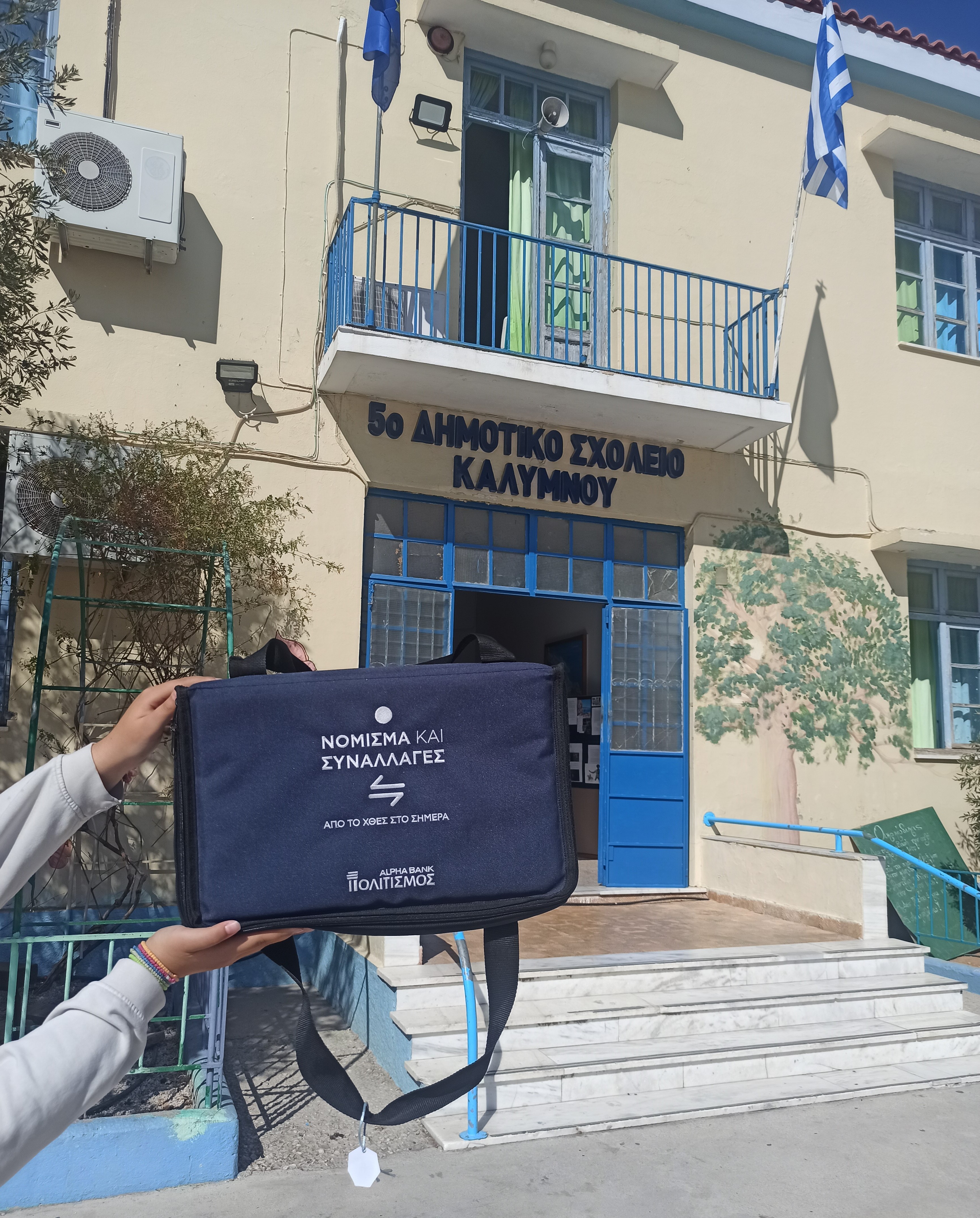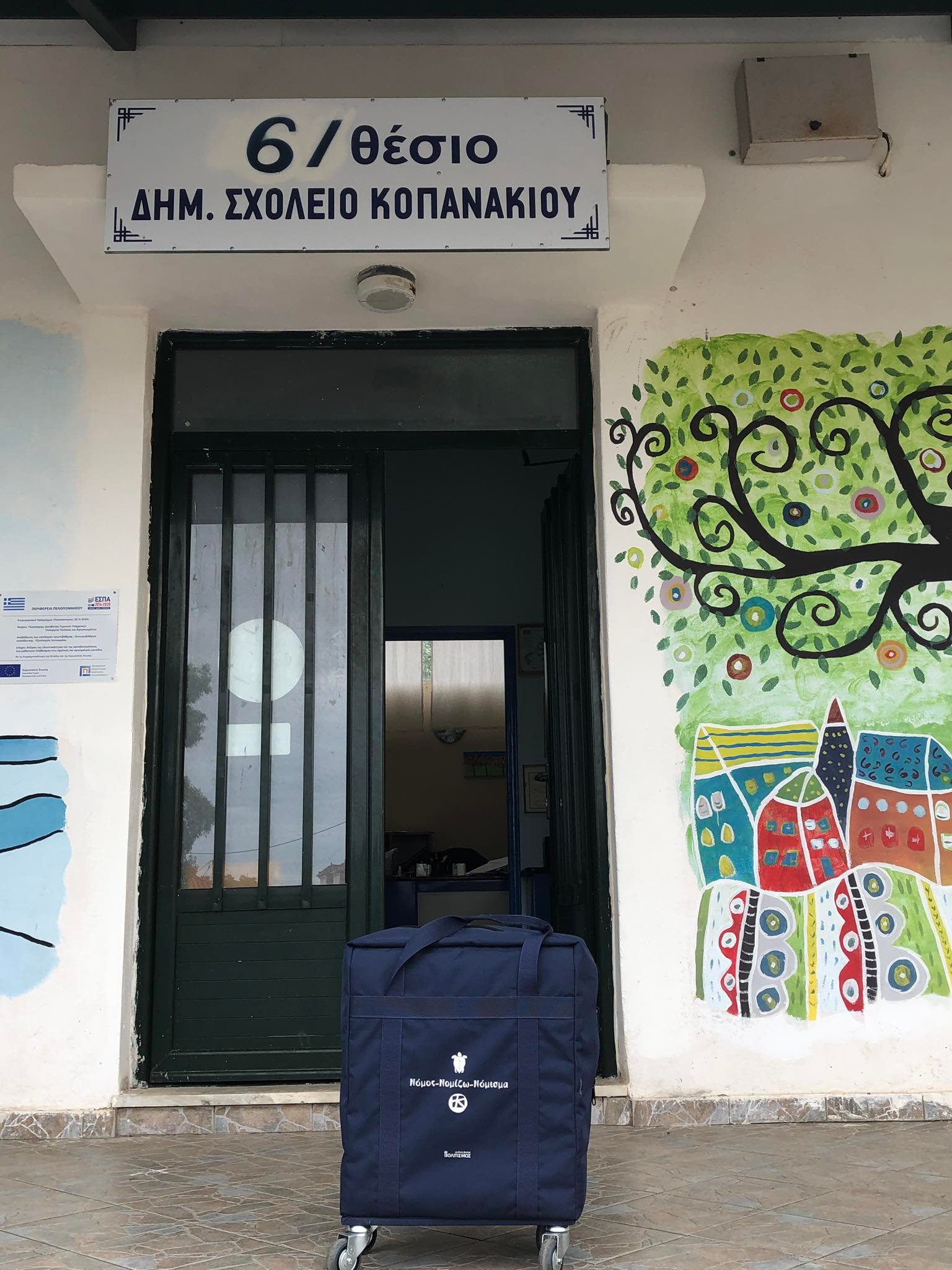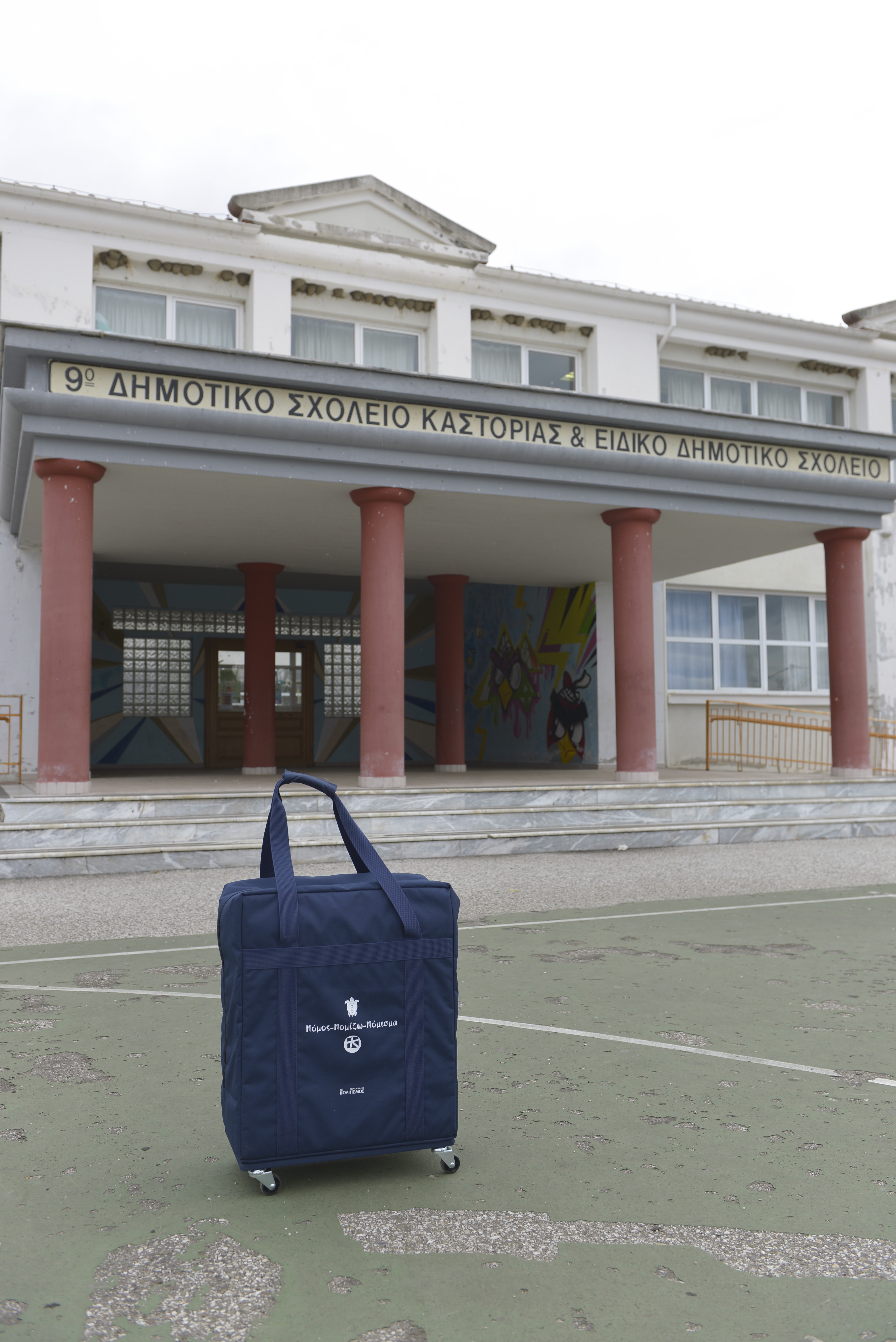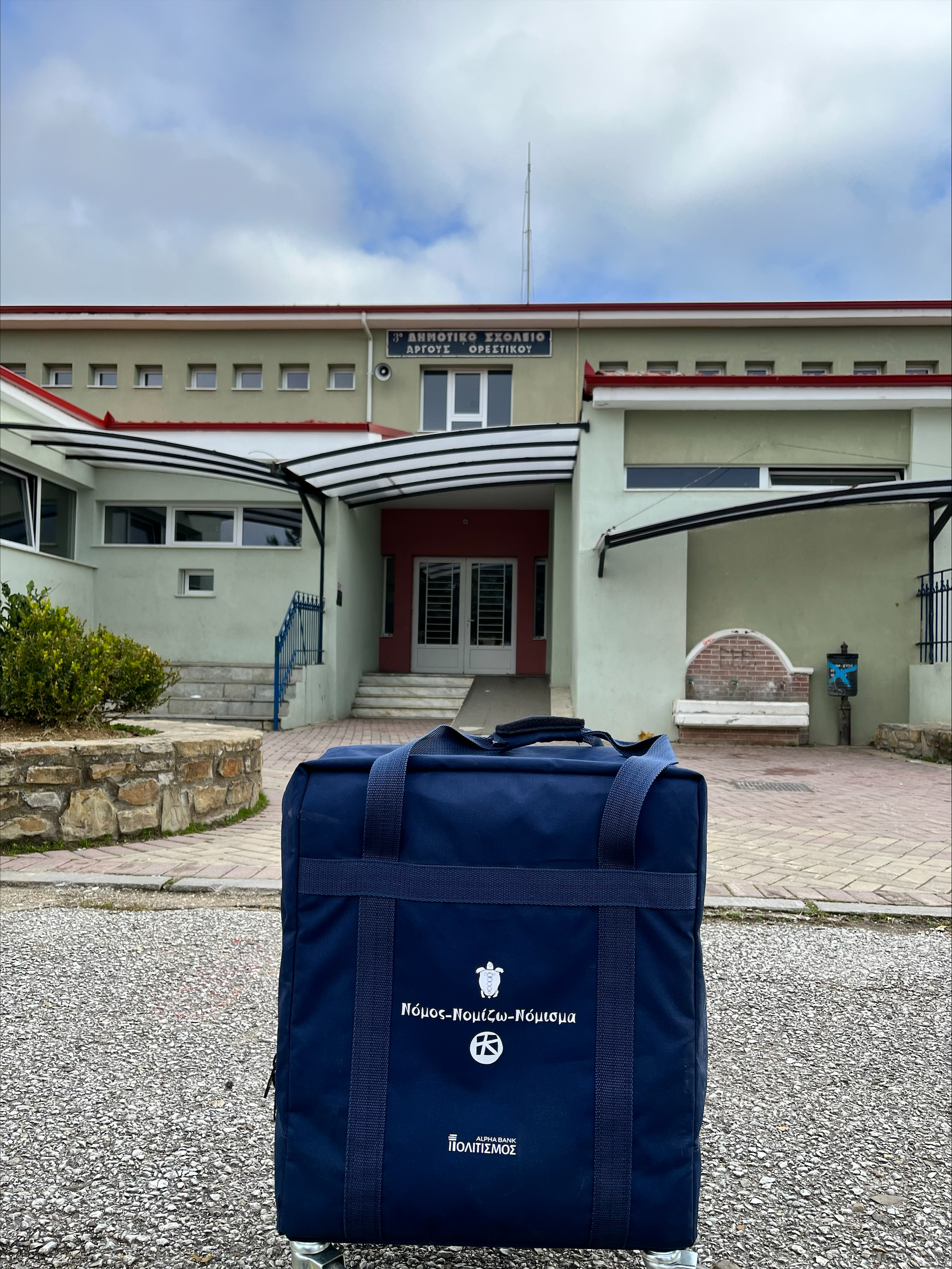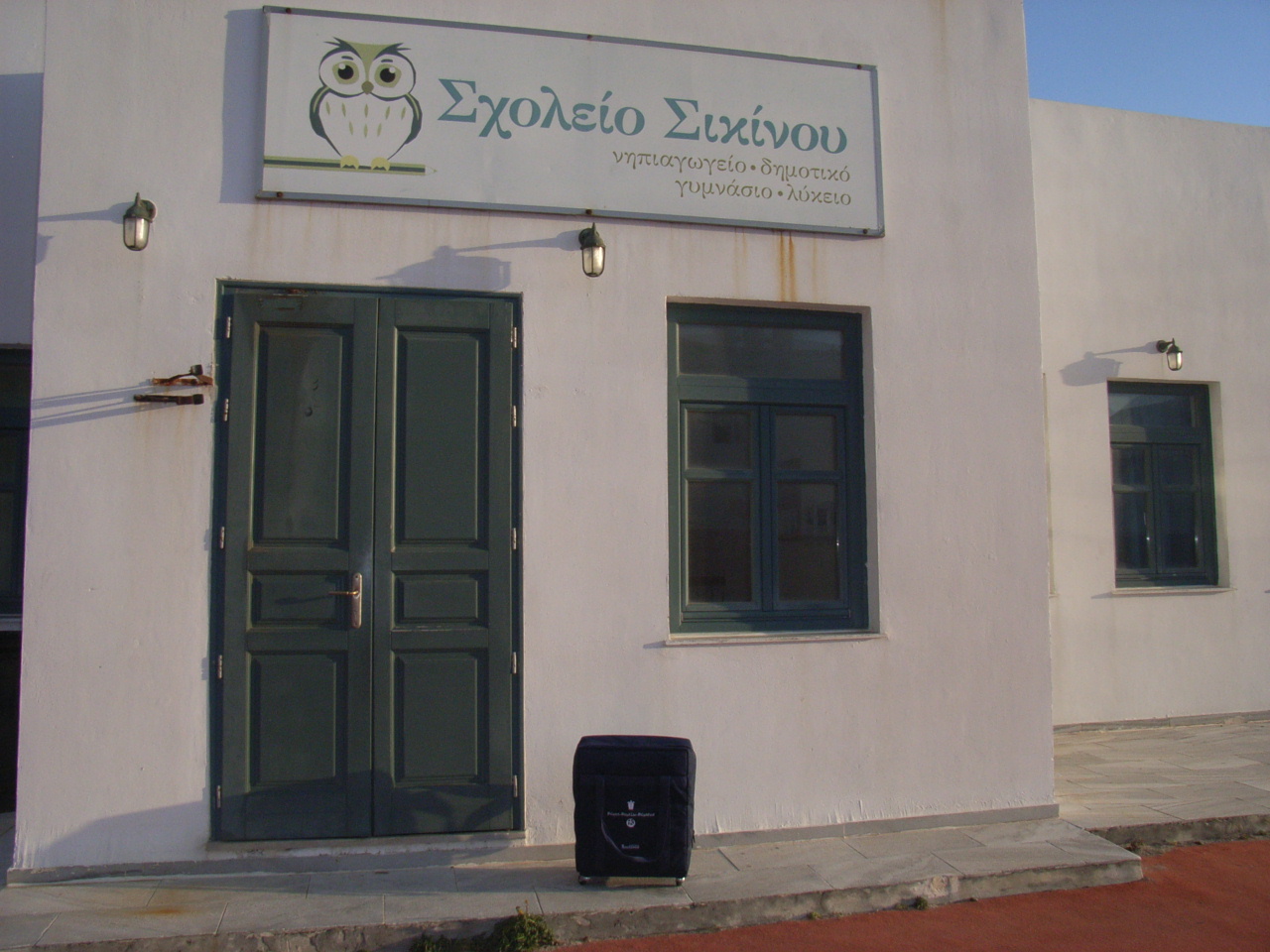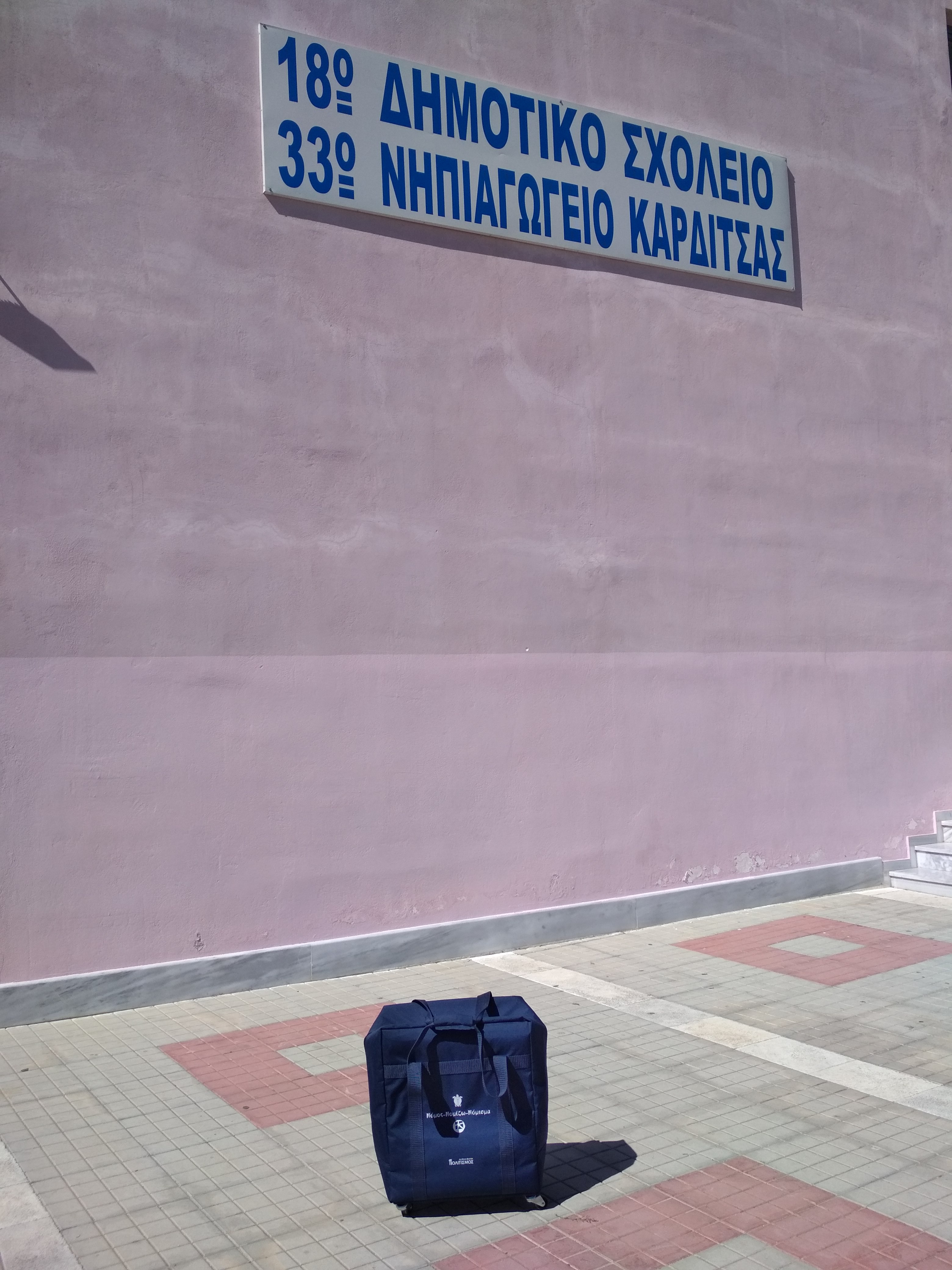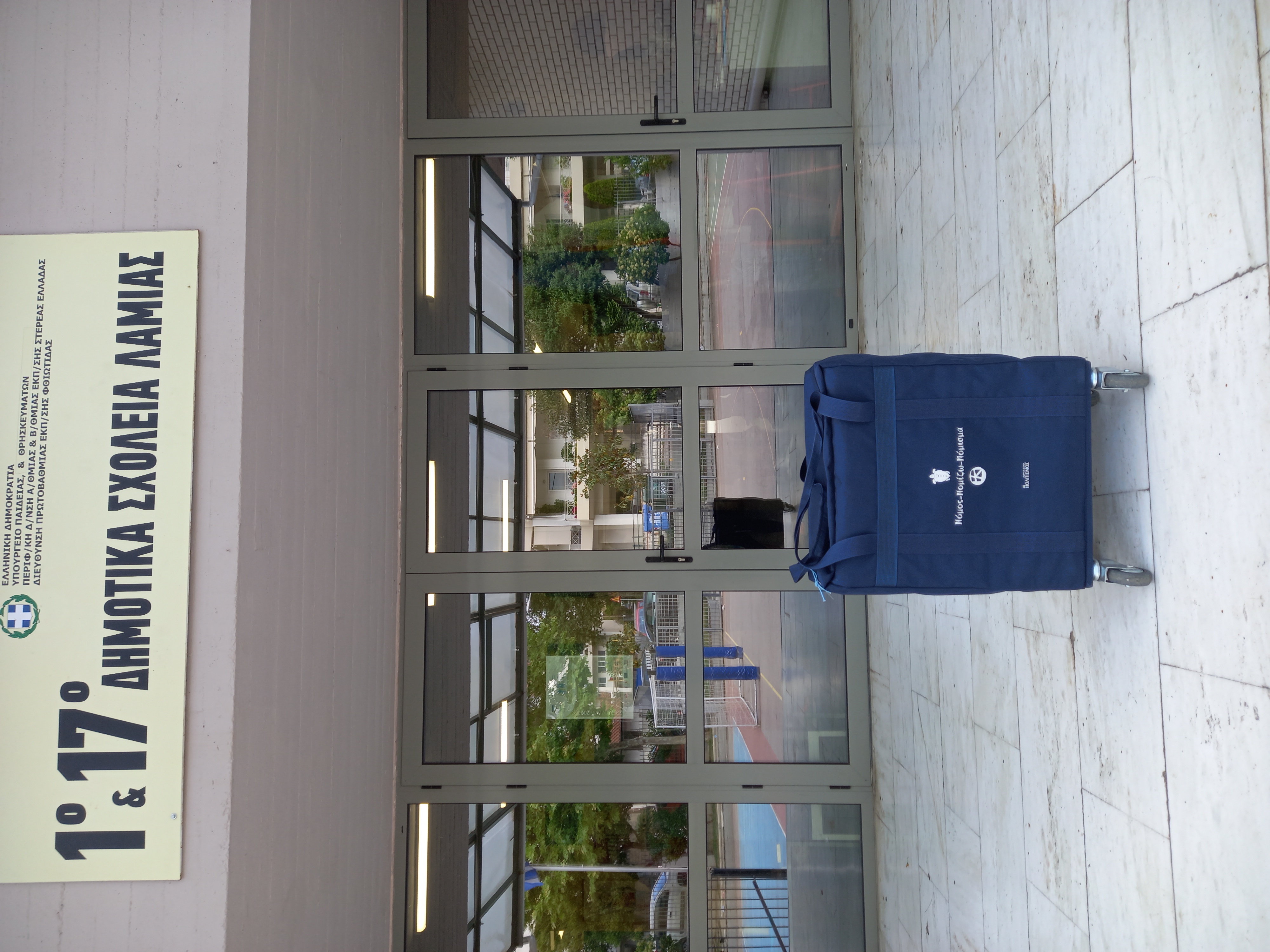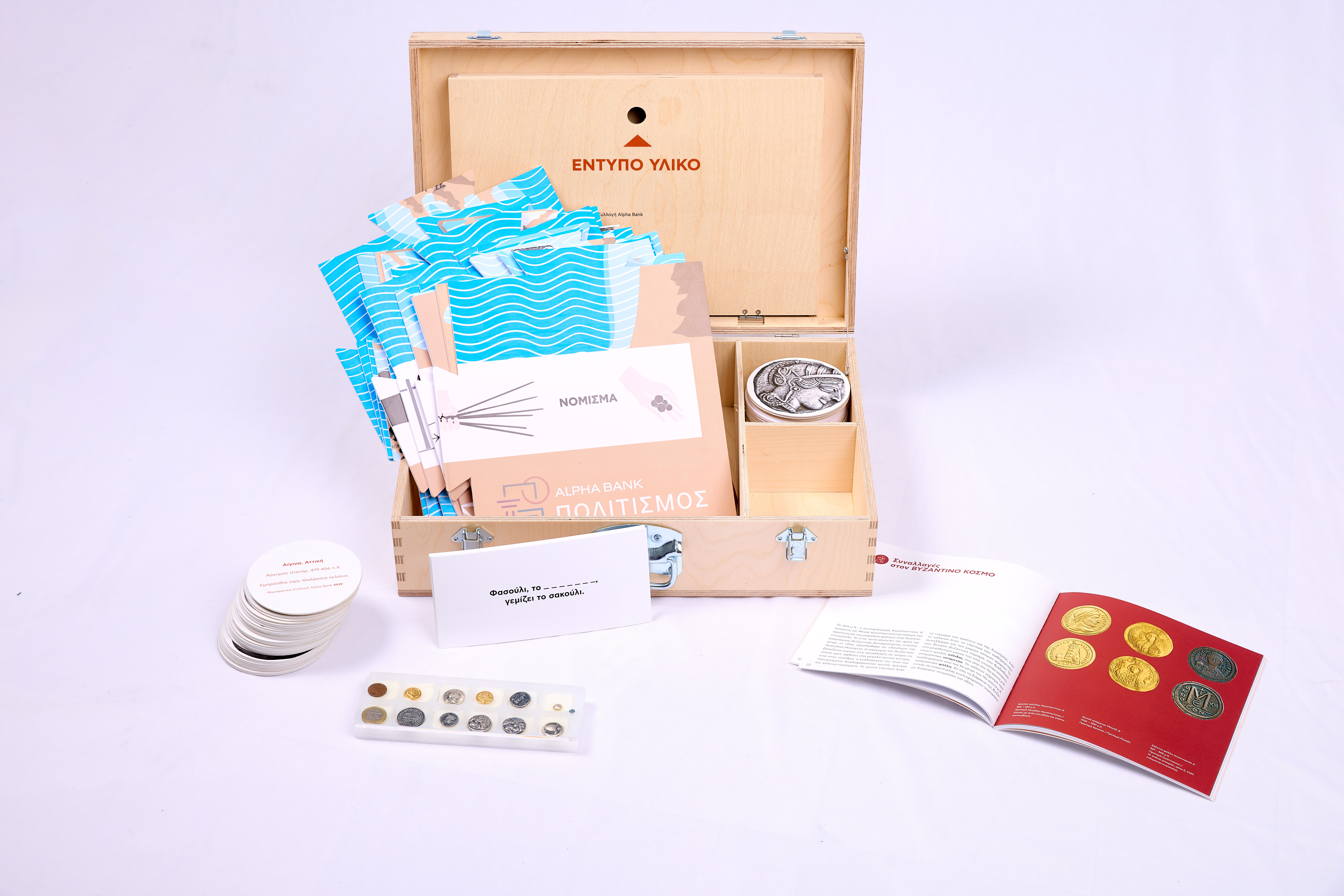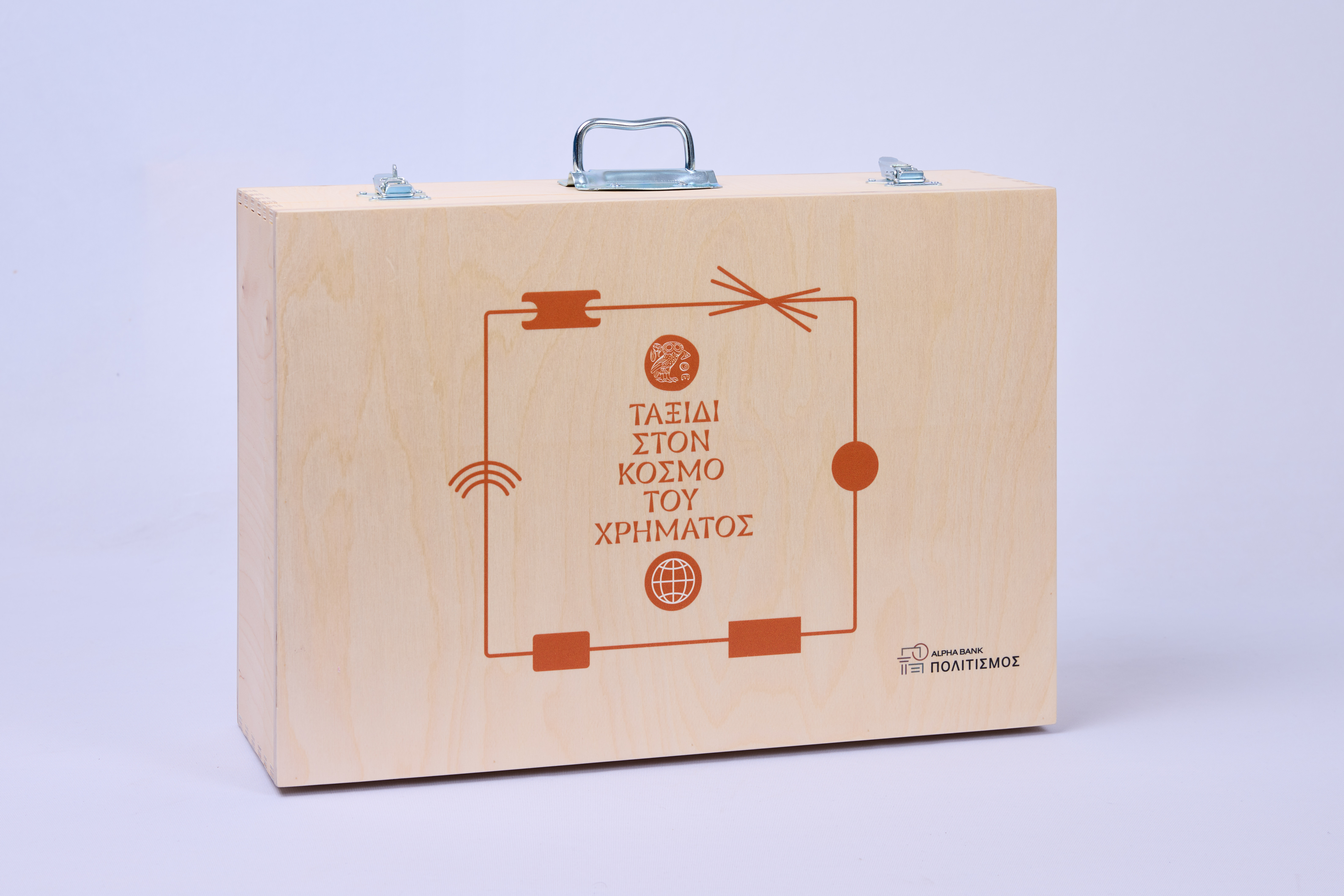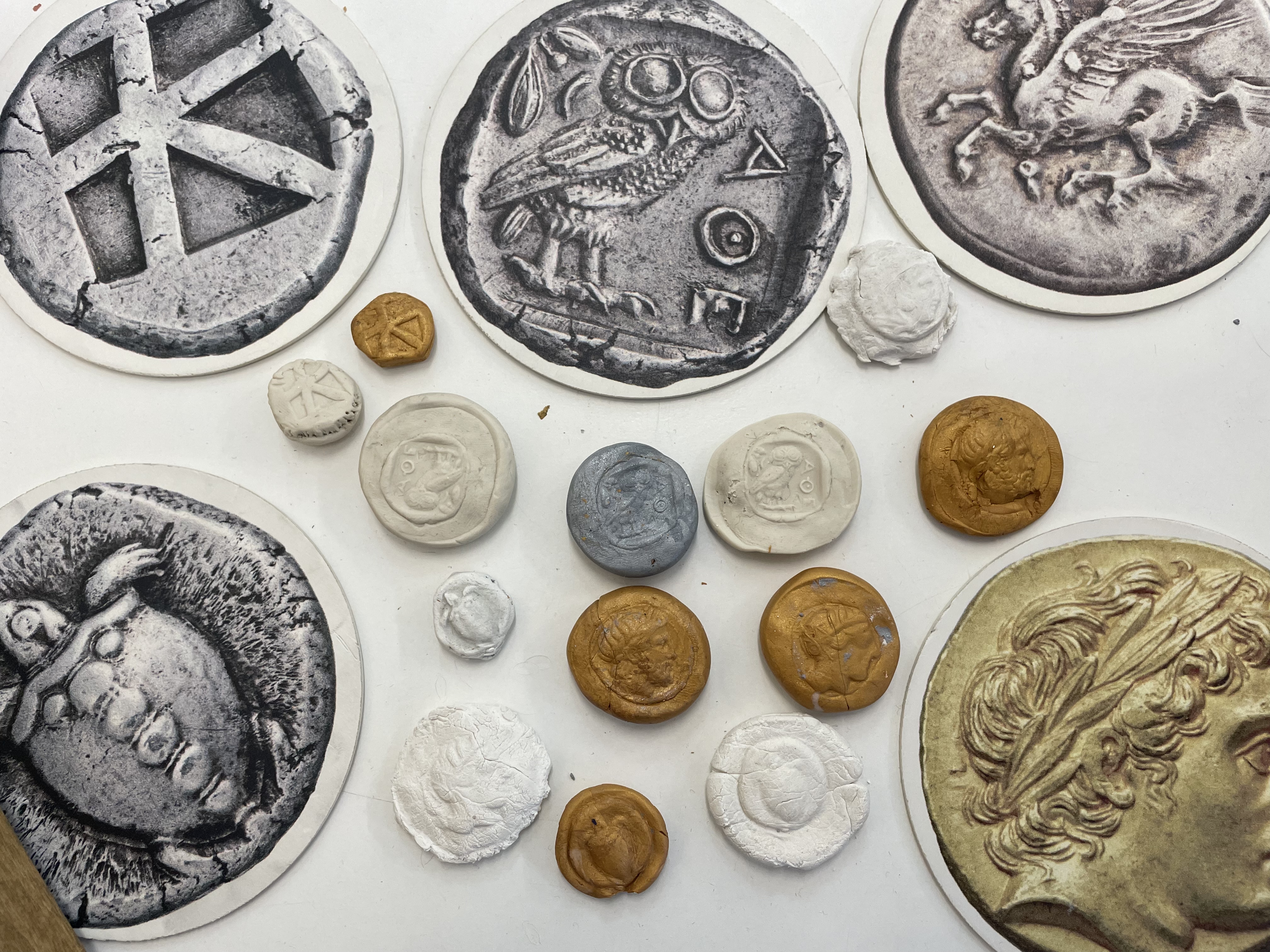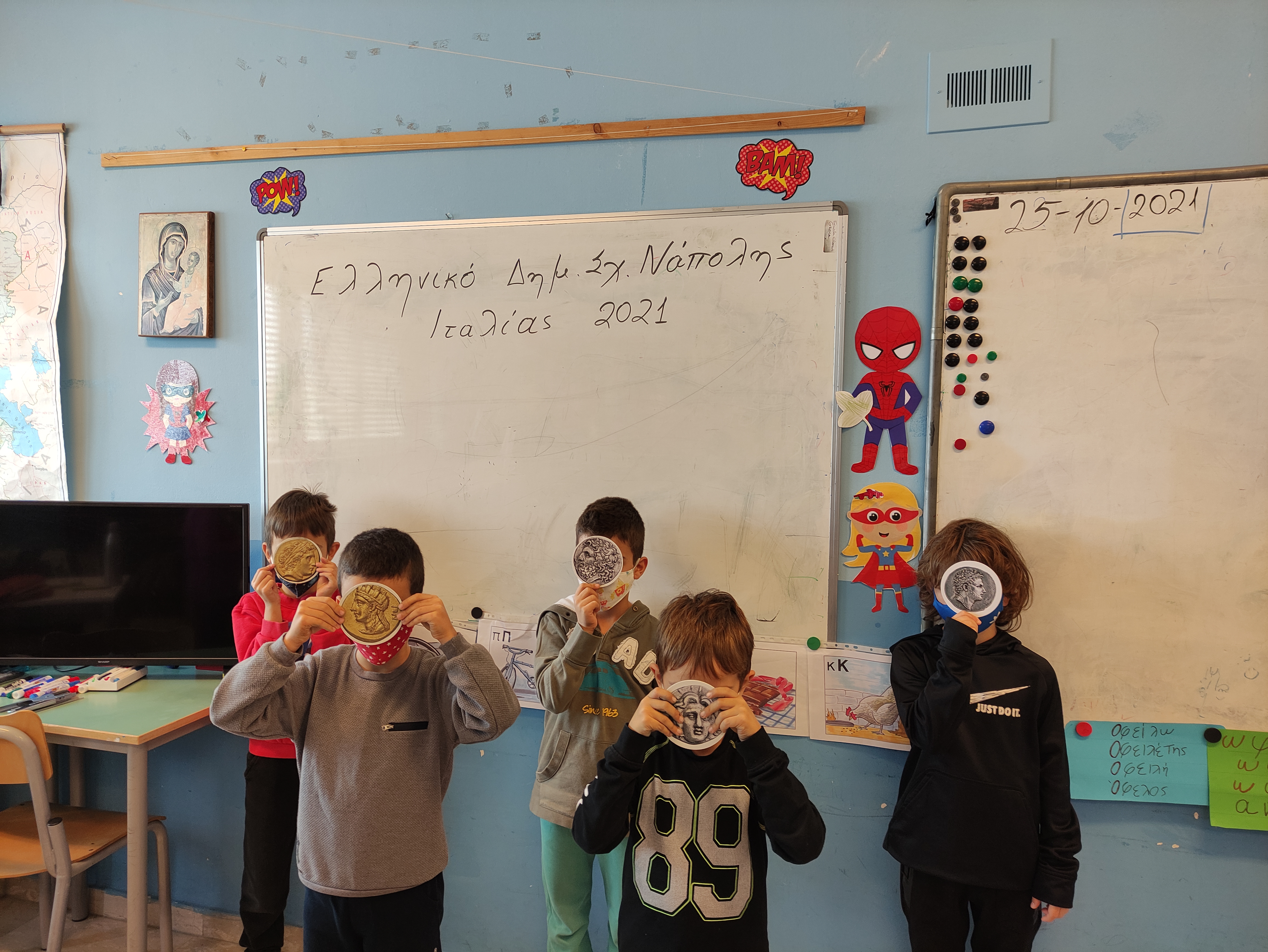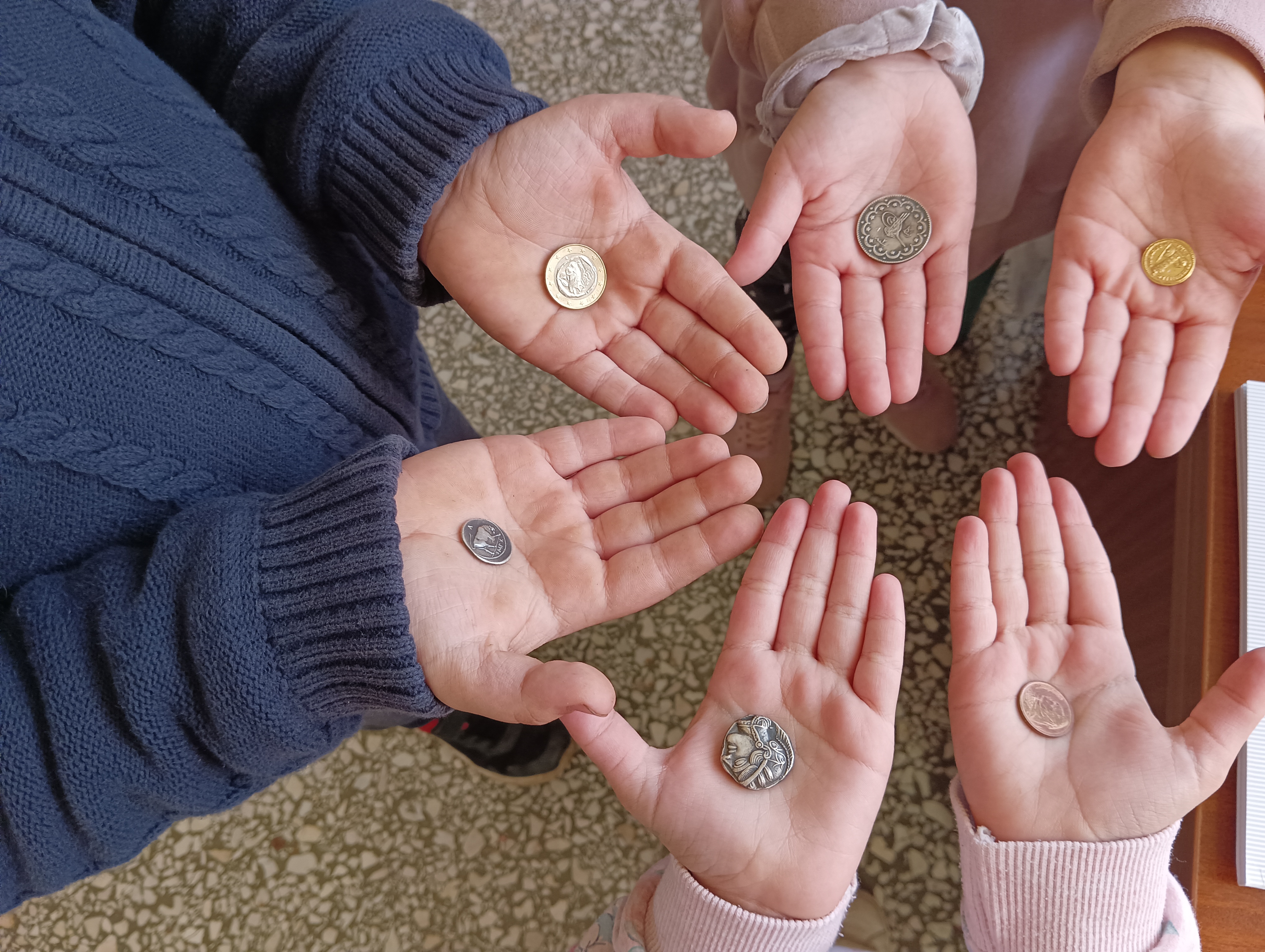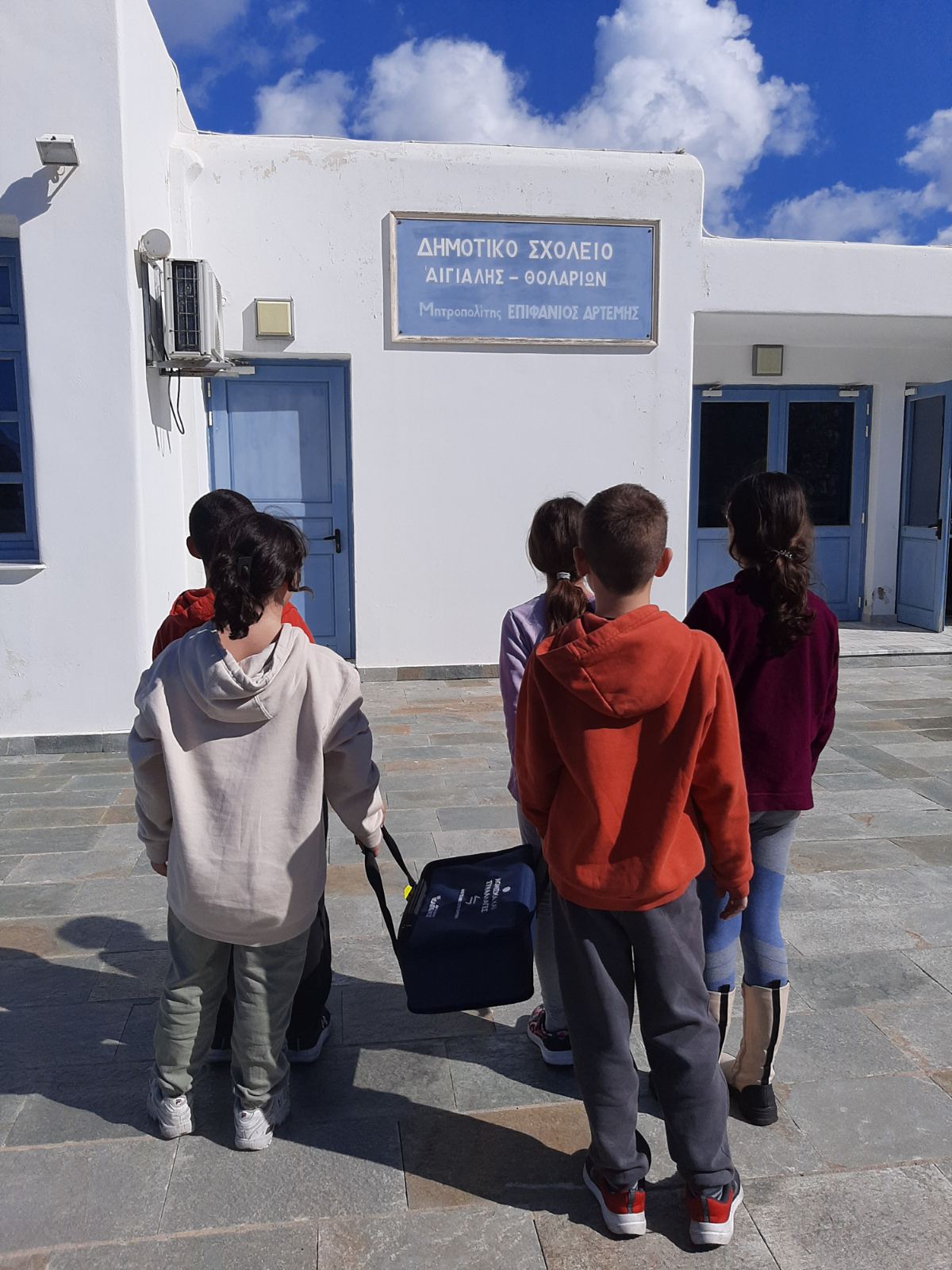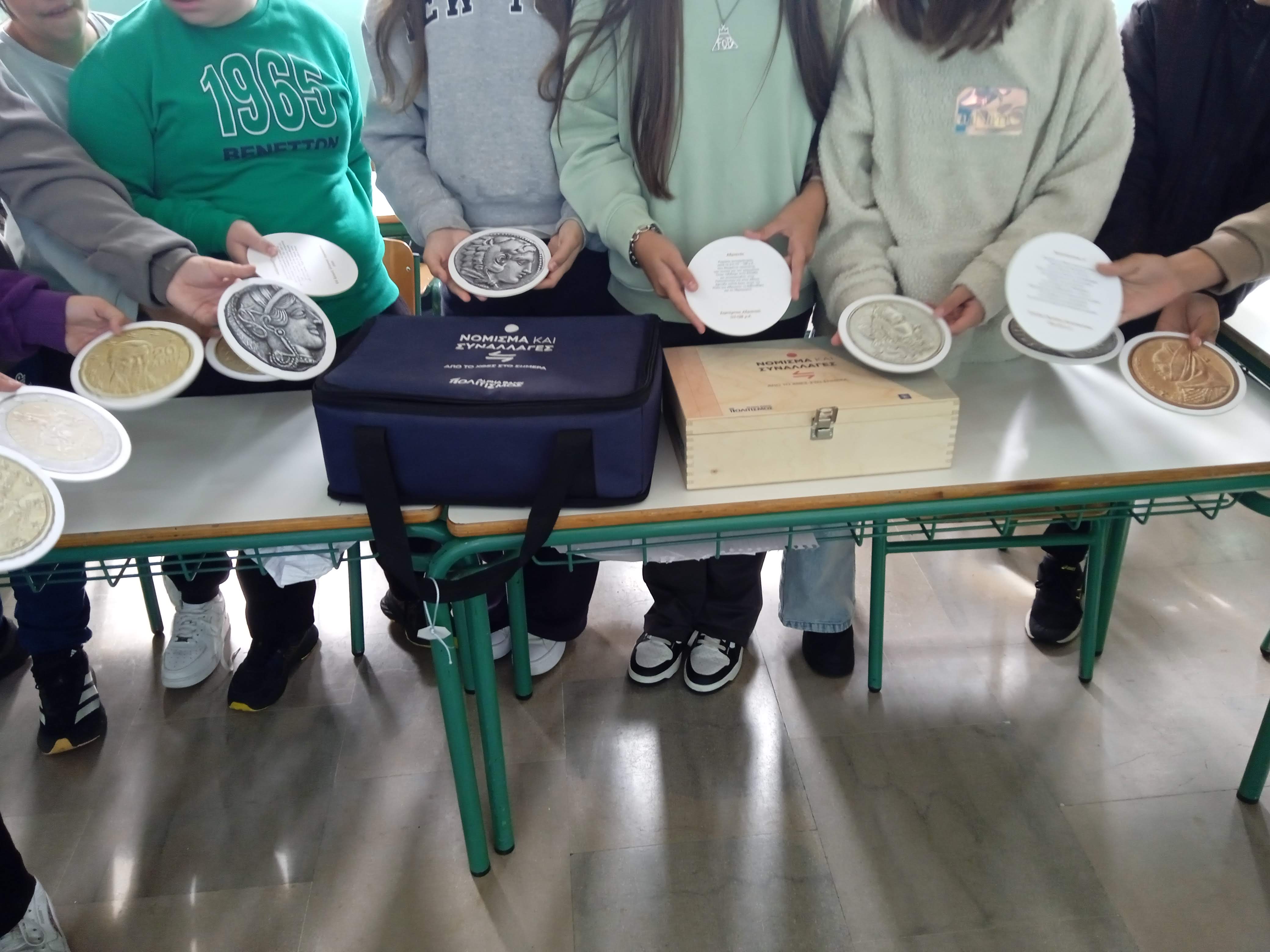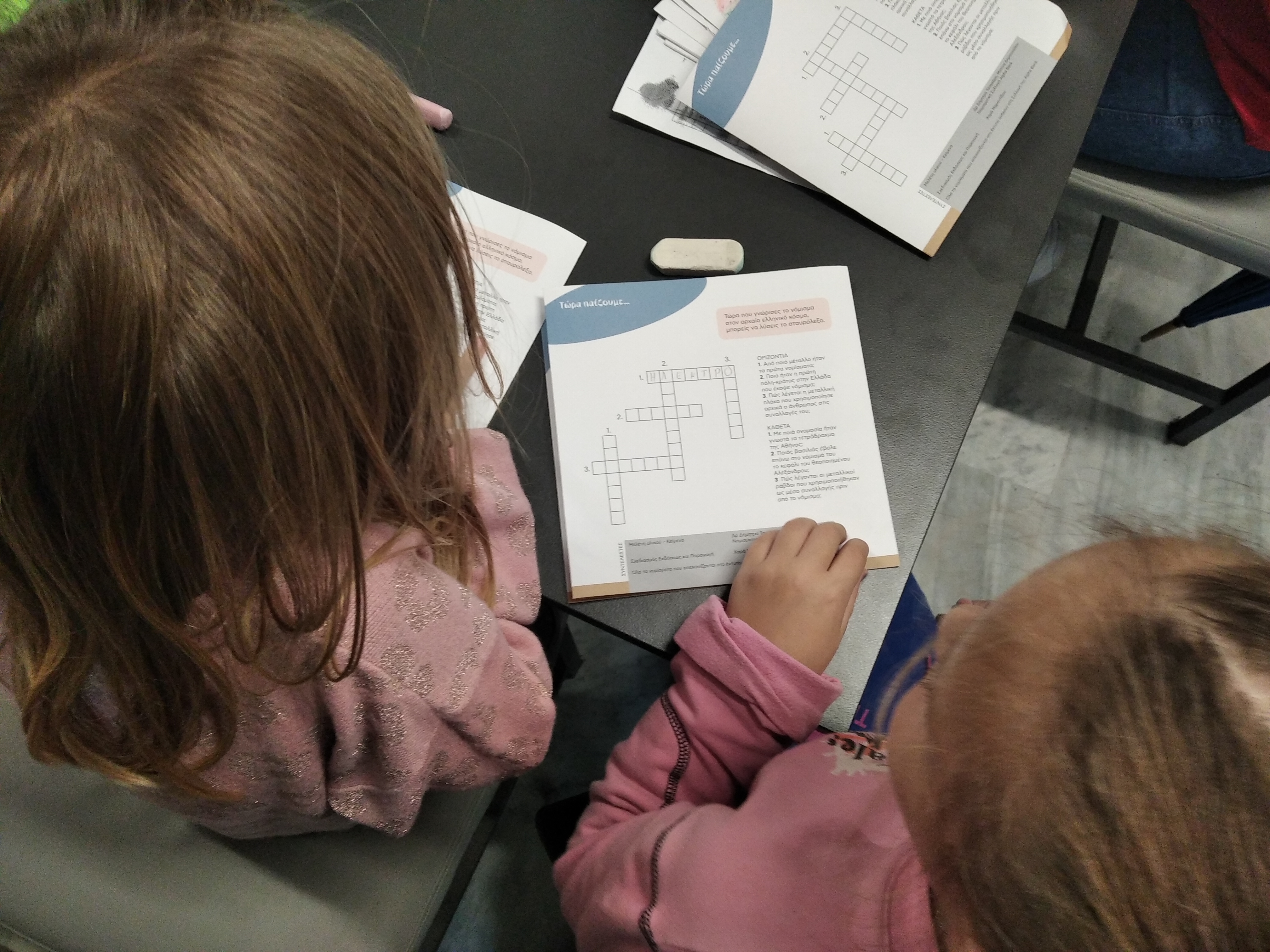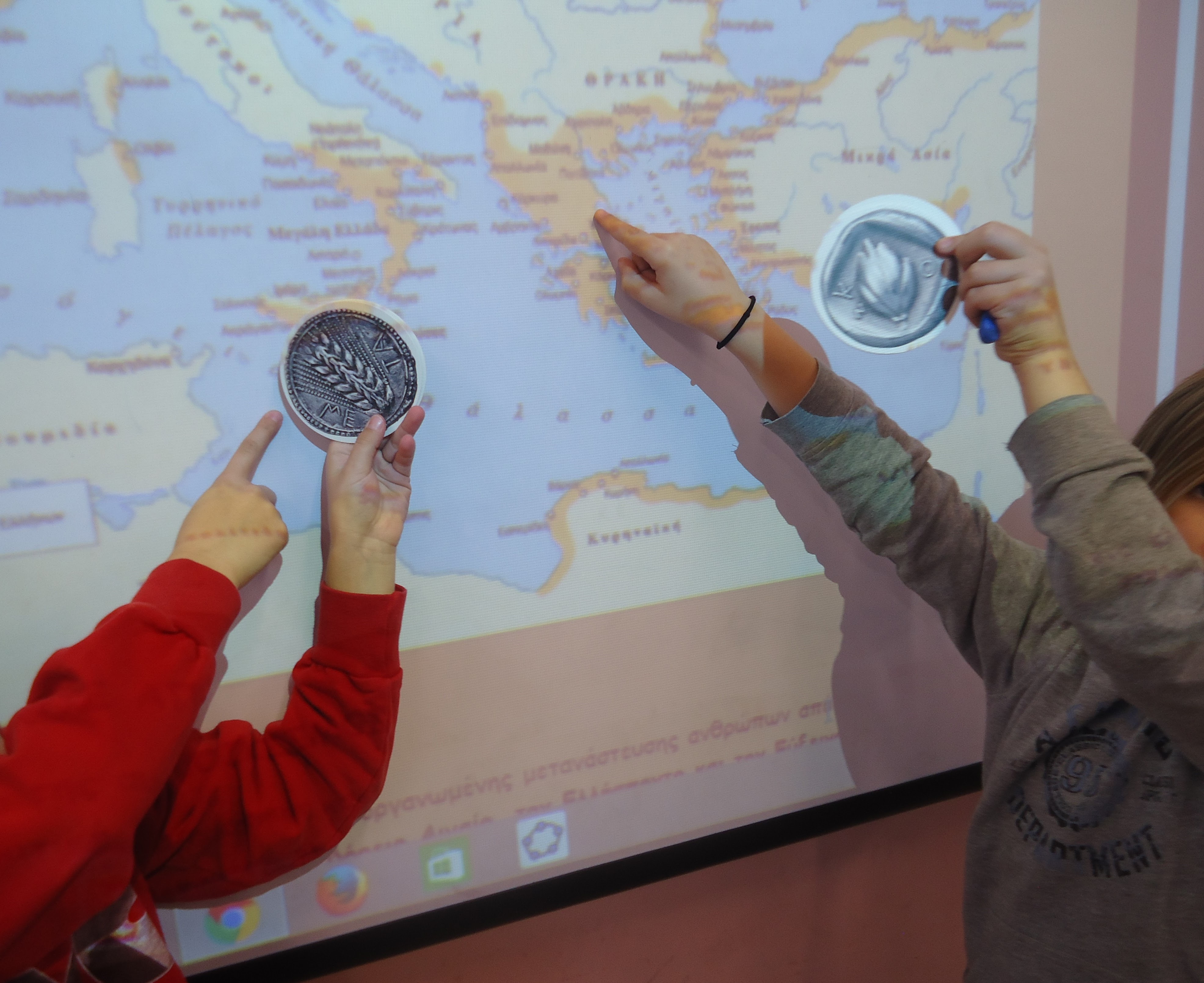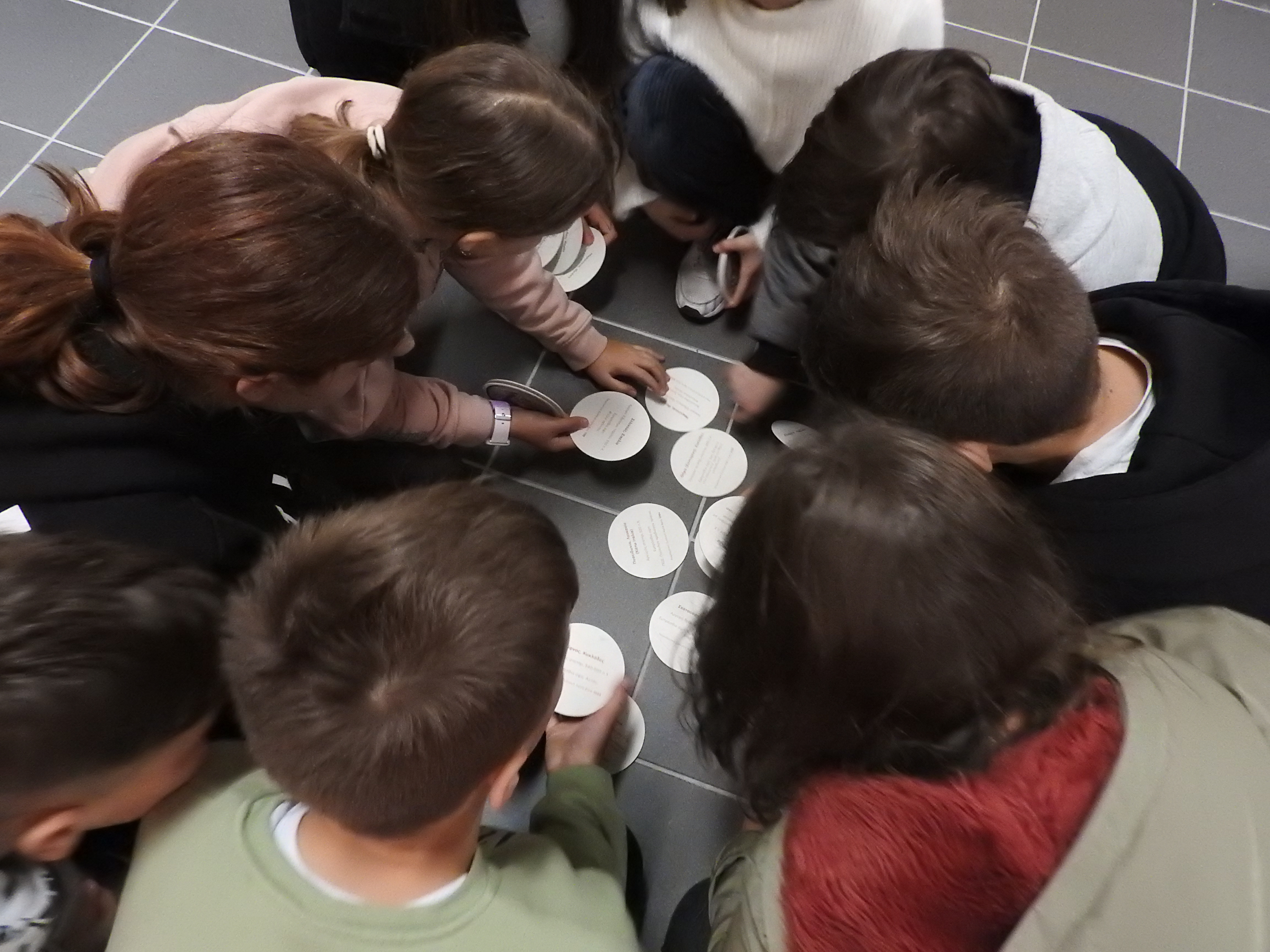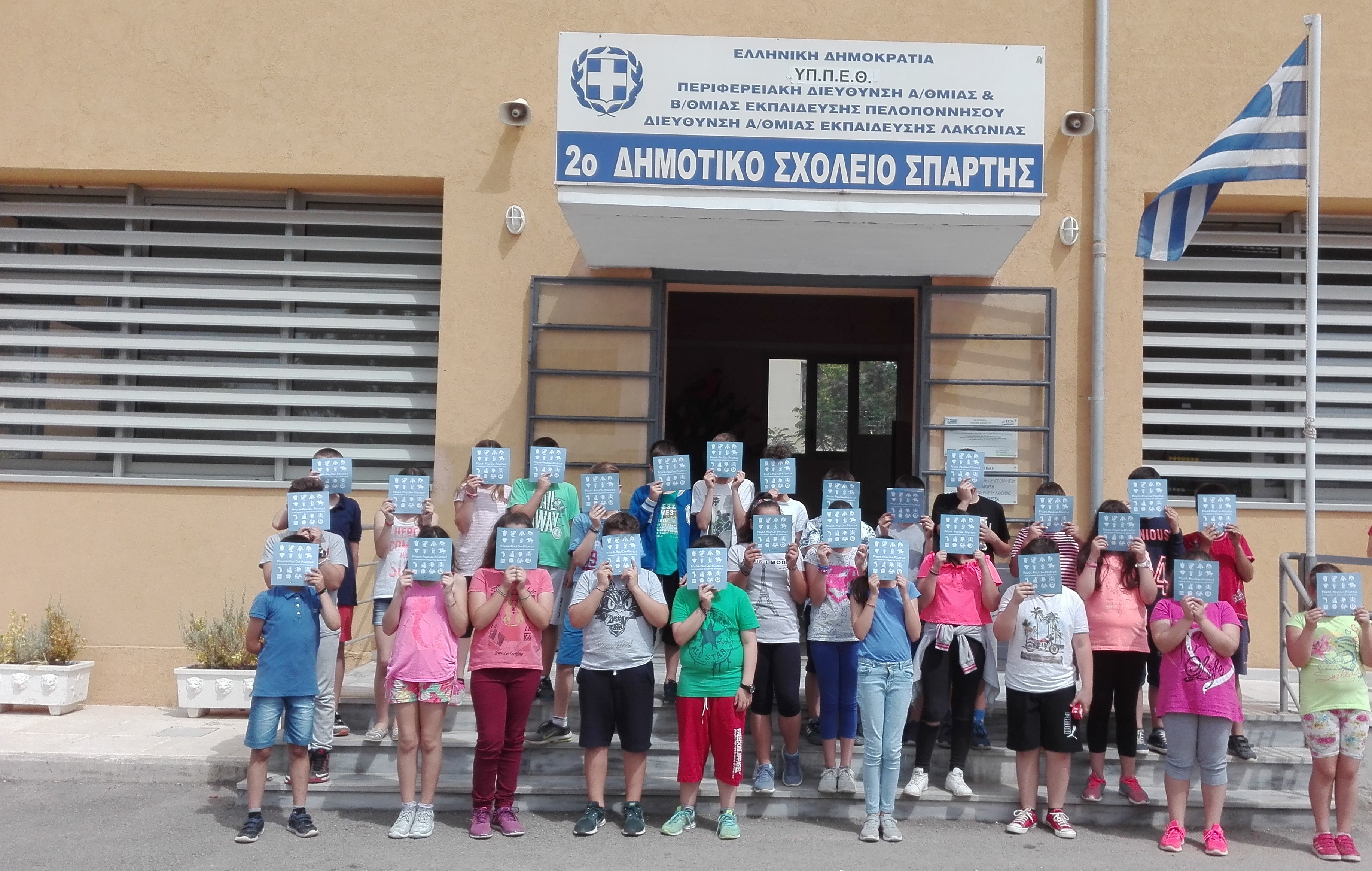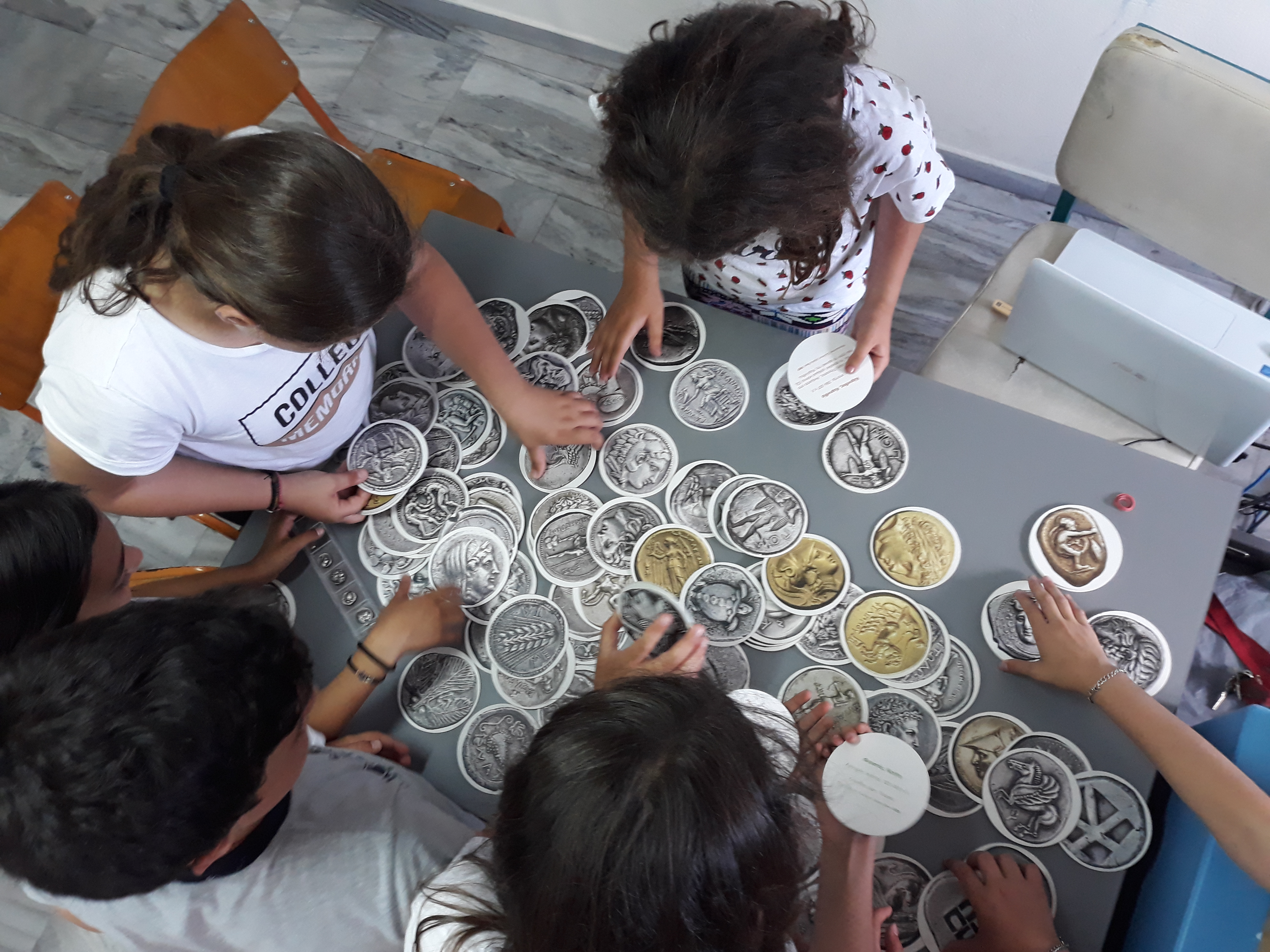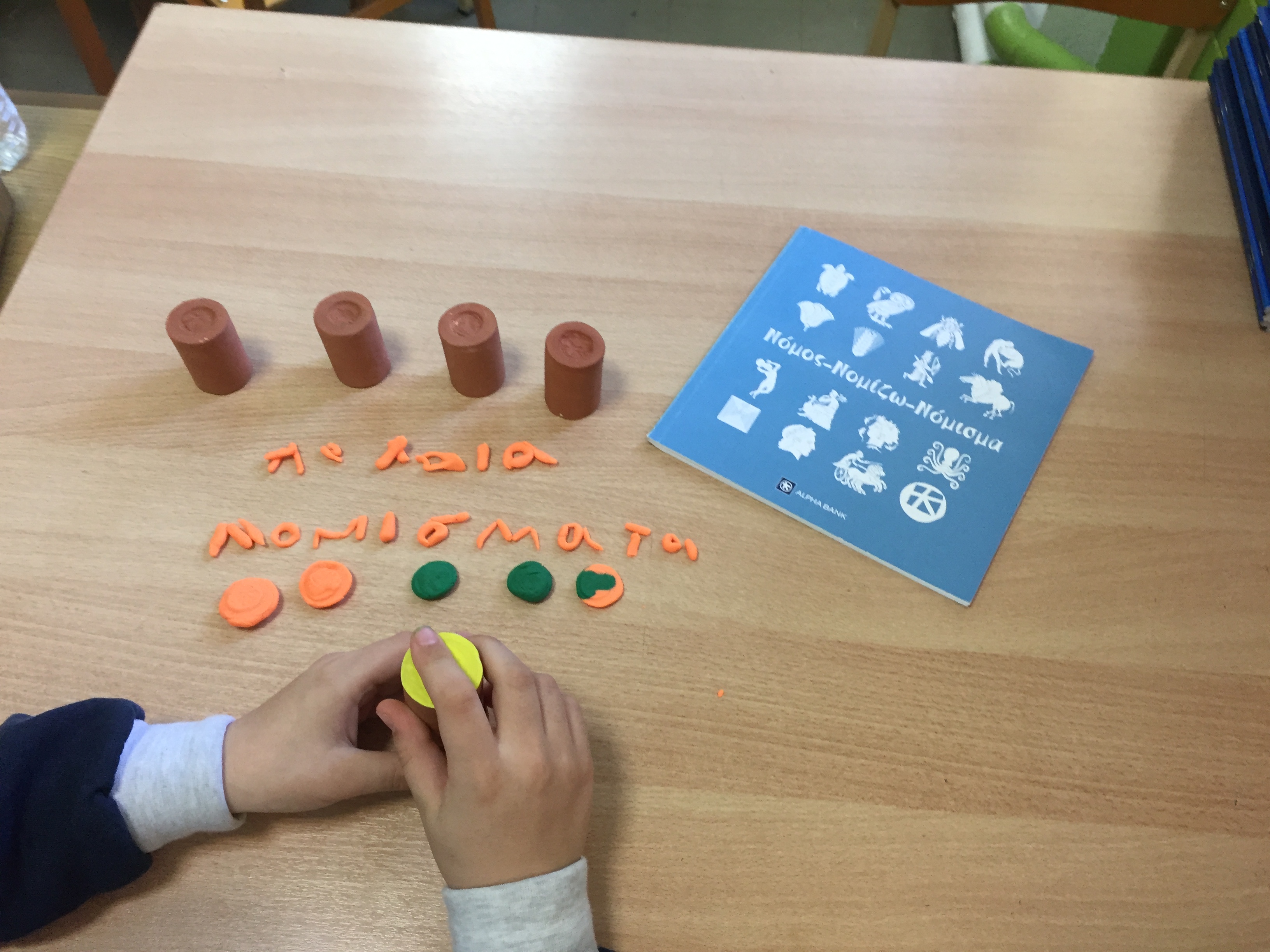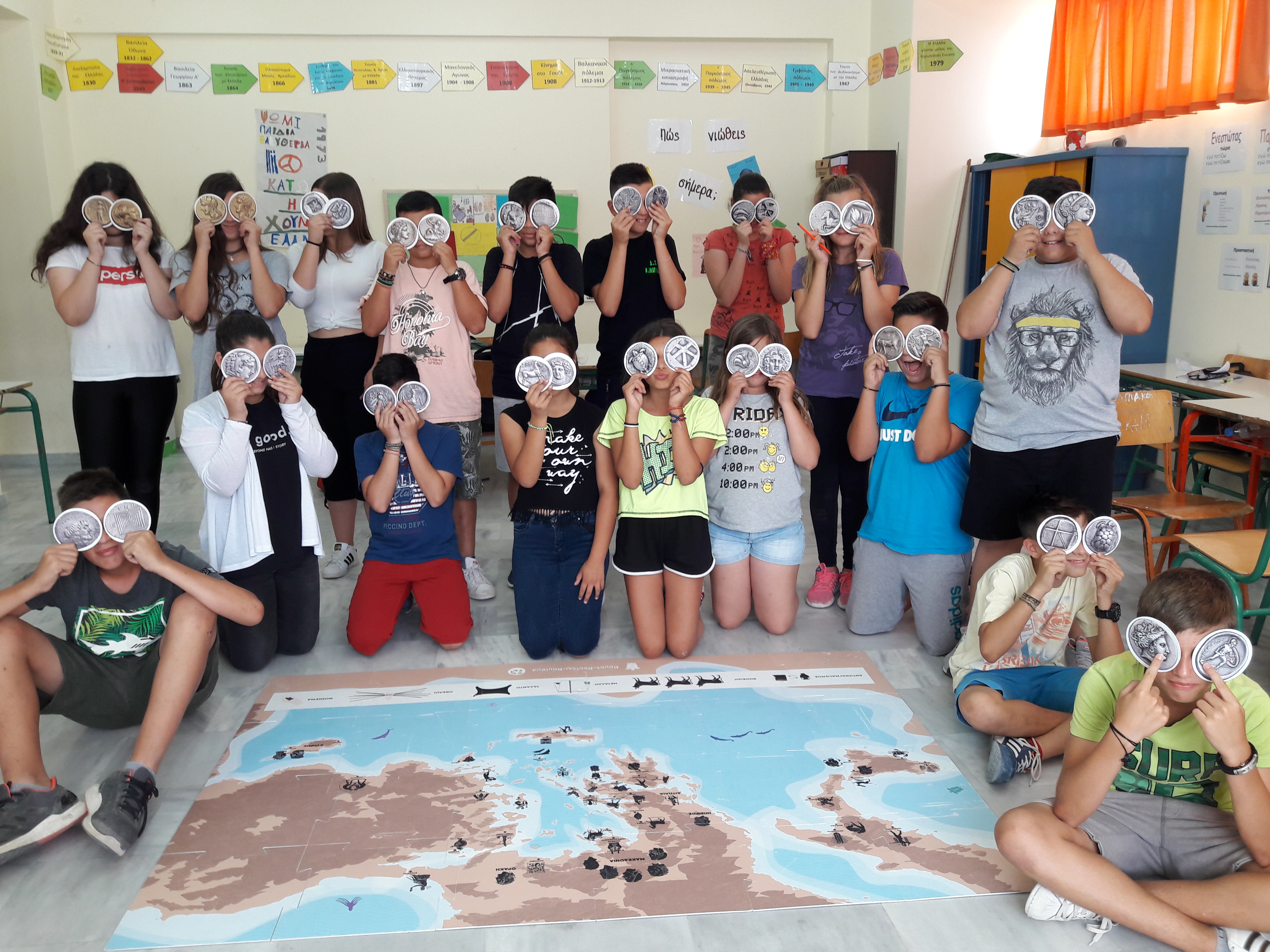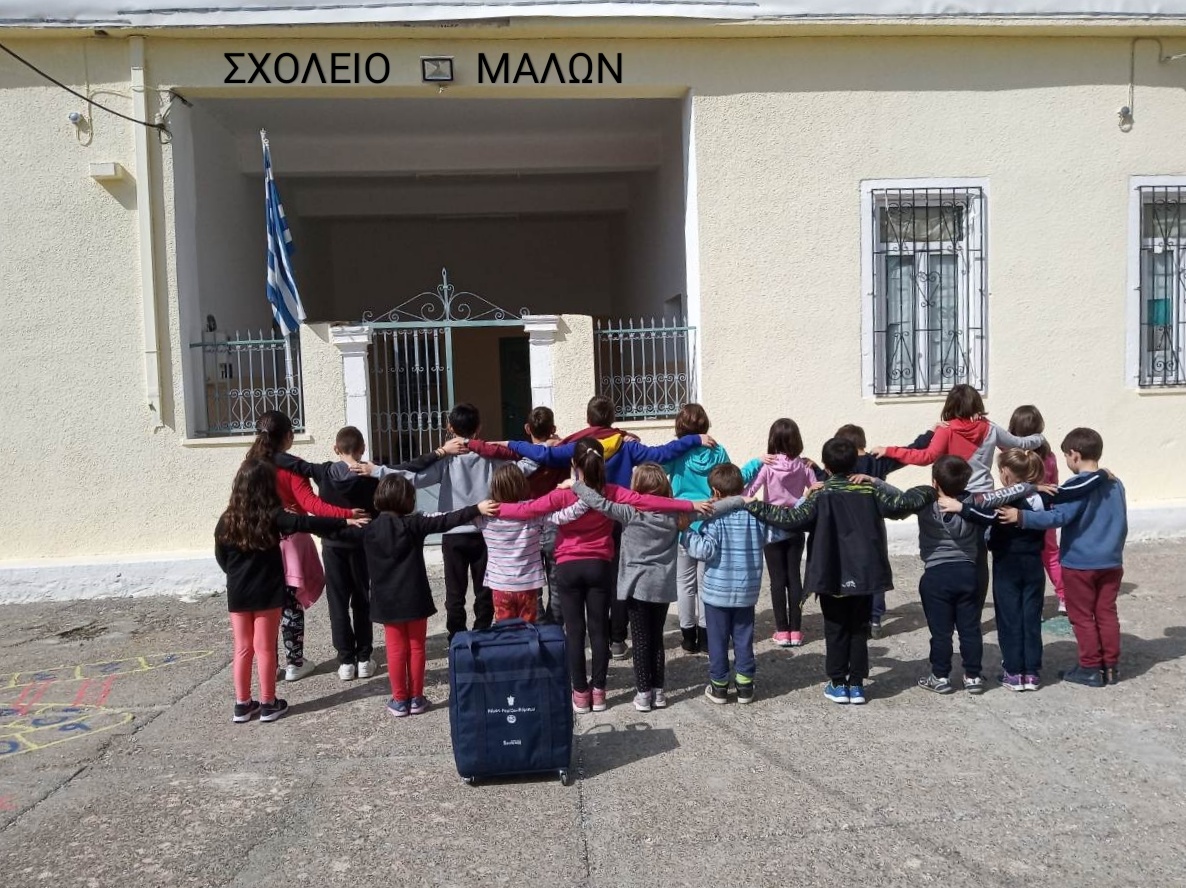The Collection in a travelling museum kit – A success story
The Collection in a travelling museum kit is an educational programme of the Alpha Bank Numismatic Collection launched in 2017. Cases containing educational material travel to schools in Greece and Greek schools abroad for free. The 2 travelling museum kits that were initially created reached more than 23,000 children. In 2024 a new and improved museum kit replaced the first 2. The programme aims at introducing the concept of currency as a means of transactions and promoting youth financial literacy.
A vision comes true
The aim of the Alpha Bank Numismatic Collection is to educate young people on subjects related to history, numismatics, and Greek culture and civilisation, as well as to enhance the financial literacy of future citizens. Its goal is for the educational programmes to reach more young people, irrespective of any geographical or financial obstacles.
In 2017 the Collection launched the “Collection in a travelling museum kit” educational programme. Museum kits containing fascinating educational materials centred around coins travelled schools in Greece and Greek schools abroad.
Initially, 2 museum kits were created:
- “Nomos-Nomizo-Nomisma”
- “Currency and Transactions. From Yesterday to Nowadays”
The contributors
Dr Dimitra Tsangari, numismatist and curator of the Alpha Bank Numismatic Collection, was responsible for the design.
She worked alongside a team of dedicated museum educators and graphic design artists, experienced in creating educational materials for schoolchildren.
The travels and the participation
Up to 2023, the 2 Numismatic Collection museum kits had travelled to Crete, Lesvos, Kos, Kalymnos, Antiparos, Kassos, Chalki, Didymoteicho and Paxoi, to name a few, but also beyond the Greek borders, to Chicago, Lausagne, Naples, Brussels, Pretoria, Korçë and Himarë.
In total, they visited 464 schools in Greece and abroad. The programmes were attended by 27,307 girls and boys.
A new museum kit is born
In 2024 the Numismatic Collection designed the new “A journey through the world of money” museum kit, which replaced the previous 2 kits. The new museum kit combines the contents of the first 2 kits, enriching it with activities centred around financial literacy.
At a glance
The “Nomos-Nomizo-Nomisma” museum kit began travelling to schools in 2017. Through targeted educational activities, we gave students the chance to get an insight into the history of coins in antiquity, starting with the appearance of coinage in the 7th century BCE.
The programme was addressed to students aged 9-11 as well as students attending special schools. It was approved by the Ministry of Education and Religious Affairs. In total, the museum kit travelled to 368 schools in Greece and abroad. The programme was attended by 18,297 girls and boys.
Nomos-Nomizo-Nomisma: explaining the name
A rule put down in writing (nomos) that with time became a habit (nomizo) and, in the end, a token used in transactions (nomisma). This is the etymological connection between the words in the kit’s name.
The name served as an opportunity to better illustrate the linguistic wealth of Greek, the admirable structure of its system, and the associations triggered by its rules. The history of the word “nomisma”, which is still is use to this day in modern Greek, goes as far back as the history covered by the programme.
The history of coins
The main educational objective of the programme was to familiarise students with the history of coins as a means of transaction, and show them the evolution of currency in antiquity.
Through the educational material, students:
- Gained knowledge on how coins first came to be and how they developed in time.
- Understood the rules governing coin types.
- Had a chance to actually hold in their hands exact replicas of the 6 most typical ancient coins.
- Discovered the history of 50 coins issued by several cities and under the rule of different kings.
- Got to know Hercules, one of the most important heroes in Greek mythology, and learned about some of his famous labours.
Encouraging creativity and teamwork
At the same time, the students had a chance to cultivate their team spirit by working in groups. They:
- Made coins according to the ancient technique, using clay dies and modelling clay plasticine.
- Drew their own coins.
- Identified cities and areas on a large, jigsaw puzzle floor map.
Recognising Alpha Bank’s social contribution
In 2019 the “Nomos-Nomizo-Nomisma” museum kit received the Corporate Responsibility Award in the “Society, Culture and Sports” category during the 8th instalment of the Awards organised by the Hellenic Advertisers Association.
At a glance
The “Currency and Transactions. From Yesterday to Nowadays” travelling museum kit started out in 2021 and gave students the chance to get an insight into the history of transactions in Greece, during 6 historical periods: Greek Antiquity, Rome, Byzantium, the Ottoman Rule in Greece, Modern Greece (i.e. after 1830) and present-day Greece.
This was intended as the students’ first contact with financial literacy and an opportunity for them to grasp modern financial ans money management concepts.
The programme was addressed to students aged 9-15. It had been approved by the Greek Ministry of Education and Religious Affairs. True to its name, the travelling museum kit travelled to 96 schools in Greece and abroad. The programme was attended by 9,010 girls and boys.
The evolution of currency
Through the materials of the programme, students learned about:
- Currency and transactions through different historical periods.
- When the first coin was put into circulation and when plastic money was first introduced.
- The euro and the security features of banknotes.
- Modern means of transaction.
Experiential learning
The useful information provided by the programme was complemented with a range of experiential activities. This way, students:
- Held in their hands exact replicas of the strongest currency from each historical period.
- Learned about 13 figures from Greek mythology, and ancient and modern Greek history.
- Became familiar with coin- and currency-related expressions that are still in use today.
- Played digital games based on the history and the means of transaction.
